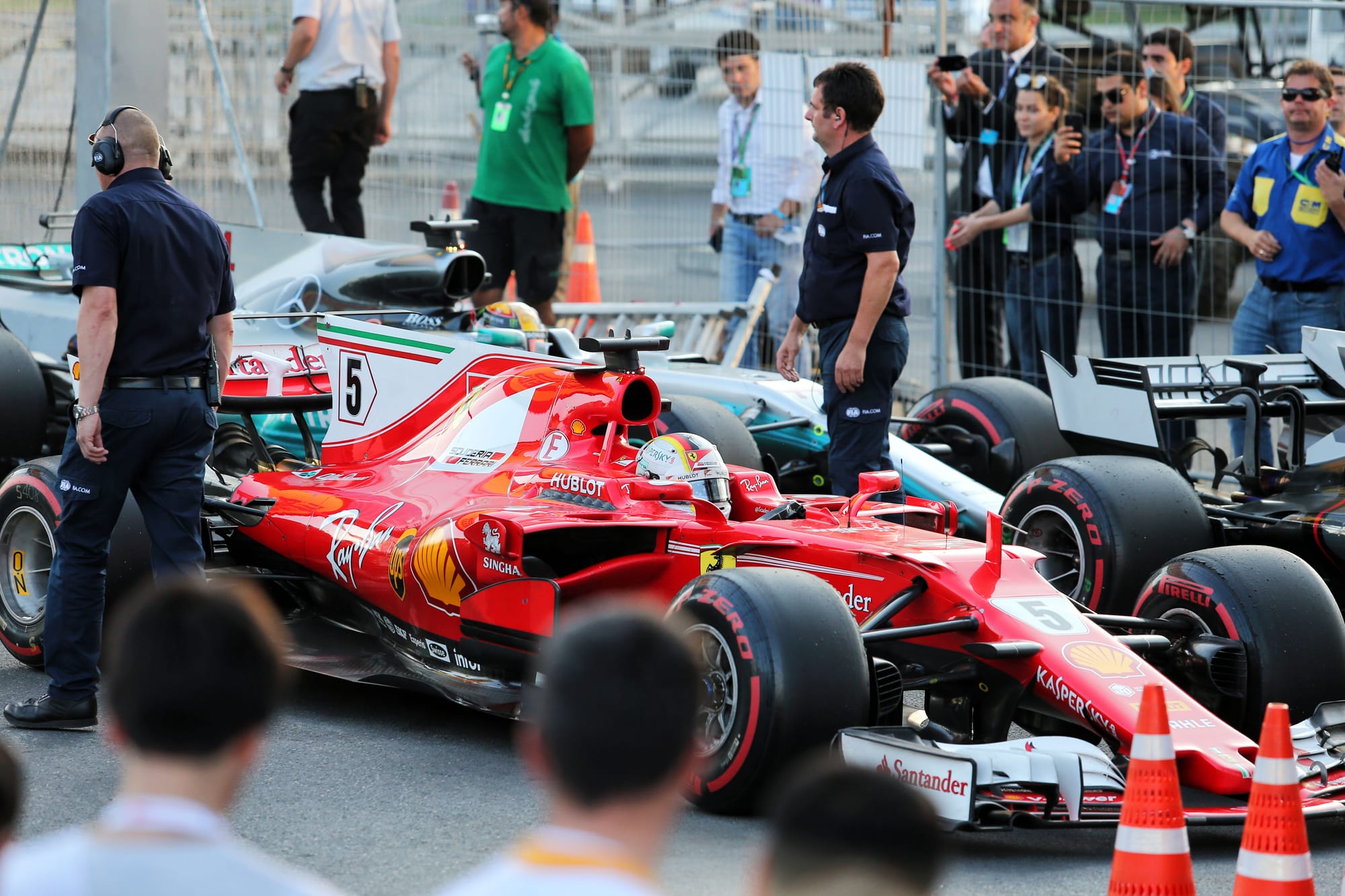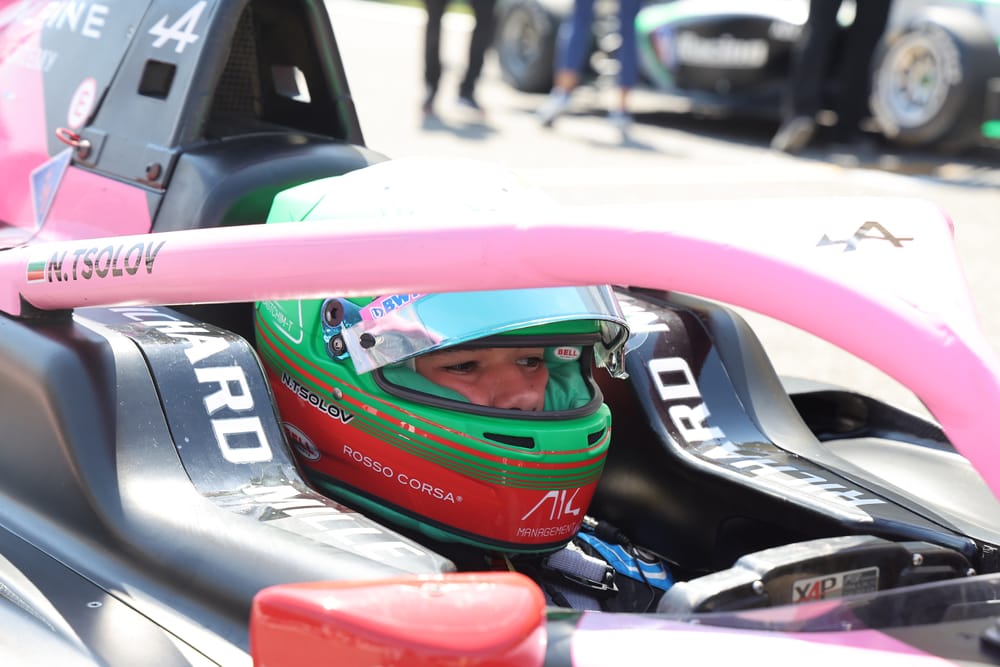Up Next

The three-place grid penalty given to Alpine Formula 1 junior Nikola Tsolov for swerving into a Formula 3 rival in practice at the Australian Grand Prix is perplexingly inadequate.
Tsolov was punished for an incident with Alex Dunne in F3’s sole practice session in Melbourne.
The Alpine Academy driver swerved towards Dunne while passing him, having been accidentally impeded moments before, causing contact that put Dunne’s car in the wall on the inside.
Tsolov, who also received two licence penalty points, denied the contact was intentional but according to the stewards’ report the move to the right itself was an act of retaliation.
🔴 RED FLAG
— Formula 3 (@Formula3) March 21, 2024
Alex Dunne and Nikola Tsolov make contact
Session will not be resumed
We'll be back at 14:00 local time for Qualifying ⏱️#AusGP #F3 pic.twitter.com/VegnawAyaC
He “stated that his lap was affected by car #9 [Dunne] and he wanted the driver to be aware of his presence and that he was being impeded,” the stewards claimed.
“car #25 [Tsolov] deviated from his normal racing line to drive close to car #9 to highlight his presence.
“He unfortunately misjudged this action and collided with car #9.”
The misjudgement, though, seems to be in the stewards’ decision, which without further explanation seems to be wholly insufficient for the offence.
🚨 BREAKING NEWS 🚨
— Formula 3 (@Formula3) March 22, 2024
Following today’s Free Practice in Melbourne, Nikola Tsolov has been handed a three-place grid penalty for the collision with Alex Dunne 👇#AusGP #F3 https://t.co/wXWIdvoXyV
The stewards seemed to have judged this like any case of causing a collision, stressing that it was “unintended” despite calling it “completely avoidable”.
That might explain why the grid penalty was supposedly applied “in accordance with previous precedents” - of which, few spring to mind. This was not a normal collision and deliberately swerving to “highlight his presence” is not a normal action. Yet it has not been met with a corresponding punishment.
The FIA International Sporting Code states it is not permitted to drive any car “erratically or in a manner deemed potentially dangerous to other drivers”. Regardless of intent, Tsolov did just that - unless the stewards believed that the swerve itself was fine, that trying to “highlight his presence” was fine, and it’s only the accidental contact that was problematic?
The FIA and its stewards should be pushing to stamp out any kind of reckless driving like that, even if it can be partly explained by the emotion in the heat of the moment.

There was no such leniency applied to Sebastian Vettel in the 2017 Azerbaijan Grand Prix, for example. He received a 10-second stop-go penalty and three licence penalty points for driving alongside and steering into Lewis Hamilton before a safety car restart, which the stewards found “potentially dangerous” (and perhaps carried greater intent than Tsolov's offence here).
It is simply hard to determine the logic for the leniency. Swerving at speed and putting another car in the wall should simply be met with a no-nonsense response.
Post-impeding retaliations are commonplace, though mainly by gesticulating, or even slowing down next to the driver that’s wronged you. That is the accepted, much safer version of ‘highlighting your presence’. This was significantly more egregious.
Were the stewards and the FIA dead set on clamping down on such behaviour, a ban would not be out of the question. It is certainly worthy of consideration, at the very least.
Instead the emphasis is on mitigation, which includes Dunne receiving a reprimand himself.
That is primarily for impeding Tsolov in the first place, which the stewards said showed the need to exercise better judgement and awareness.
But it is also partly because that “led to the following collision and retirement of his car” and the stewards felt it “necessary to elevate the penalty” as a result - an implication of ‘well, you started it’, to add to the wider inadequacy of the response.



